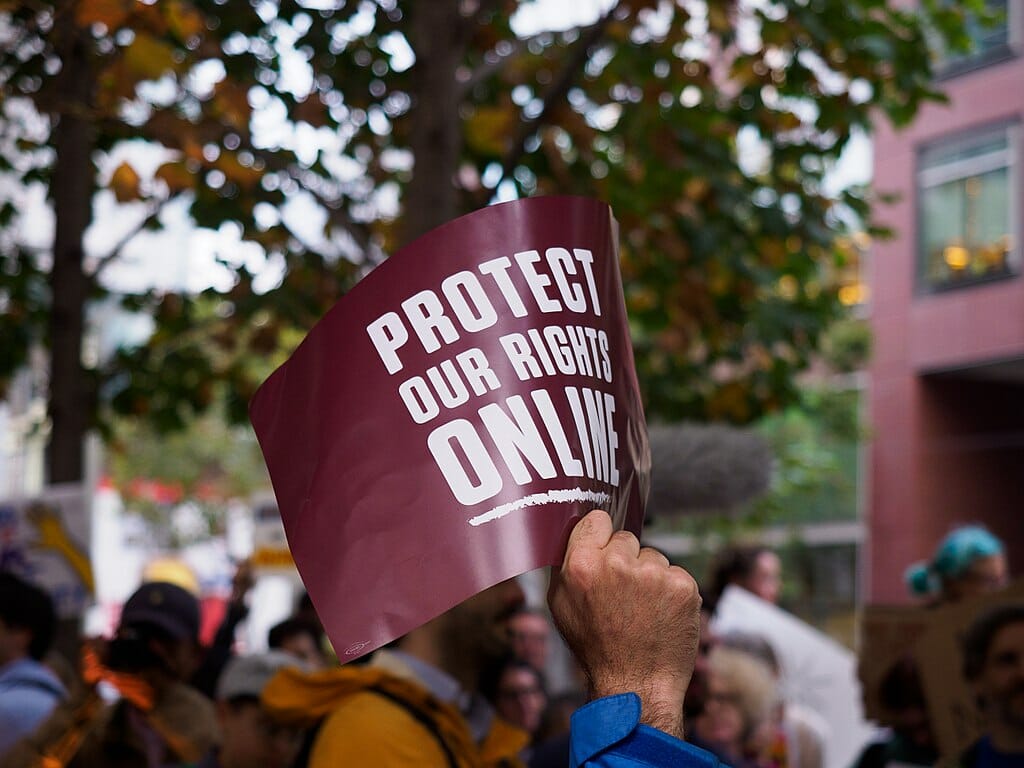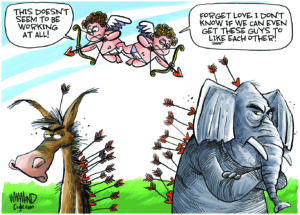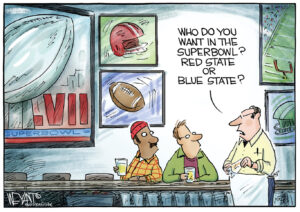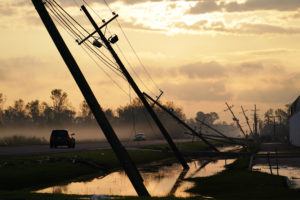A Last-Ditch Battle for ‘Net Neutrality’
Legislation that Democrats have created might pass the Senate, but it has little chance of clearing the House. A 2017 "Protect Net Neutrality" rally in San Francisco. (Credo Action / Wikimedia)
A 2017 "Protect Net Neutrality" rally in San Francisco. (Credo Action / Wikimedia)
“Net neutrality” laws are set to expire June 11, the Federal Communications Commission announced Thursday, and now a number of senators, mainly Democrats, are staging a last-ditch effort to save them.
The Obama-era rules, enacted in 2015, aimed to create a free and open internet by preventing telecommunications companies from charging more for faster internet service, or otherwise privileging their own material or that of their advertisers online. If the rules are allowed to expire, companies will have “broad new power over how consumers can access the internet,” Reuters notes.
In repealing the rules, the government is favoring the interests of giant telecoms over those of American consumers, effectively limiting the information they can consume based on their ability to pay for it.
Multiple state and federal officials have spoken against repeal. Barbara Underwood, the acting attorney general for New York, told Reuters that “the repeal of net neutrality would allow internet service providers to put their profits before the consumers they serve and control what we see, do, and say online.”
New York is leading a group of 22 states in suing to block the changes from taking effect.
On Wednesday, the Senate Democrats announced they are calling for the reinstatement of what they see as critical consumer protections and are moving to force a vote on the proposal, as CNN reports. “This is the fight for the internet,” Sen. Ed Markey, D-Mass., told reporters, saying that the group’s efforts put net neutrality rules “back on the books.”
Advocates, however, are not hopeful that this last-ditch action will work, despite its likelihood of passing the Senate.
Michael Fauscette, an expert in net neutrality and chief research officer of G2 Crowd, a software and services review company, said in a statement, “There is some momentum in the Senate, with two Republicans already defecting and promising to vote for the bill when it comes in the floor next week, which is only 1 vote shy of the simple majority required to pass.”
“Unfortunately,” he continues, “the attempt seems doomed either in the House or with the President, who would most certainly refuse to sign the bill.”
The best-case scenario, as Fauscette sees it, is that the bill “will at least serve as a roll call to put the representatives on record about their stance on net neutrality, something that could have repercussions in the upcoming midterm elections.”
Your support matters…Independent journalism is under threat and overshadowed by heavily funded mainstream media.
You can help level the playing field. Become a member.
Your tax-deductible contribution keeps us digging beneath the headlines to give you thought-provoking, investigative reporting and analysis that unearths what's really happening- without compromise.
Give today to support our courageous, independent journalists.






You need to be a supporter to comment.
There are currently no responses to this article.
Be the first to respond.